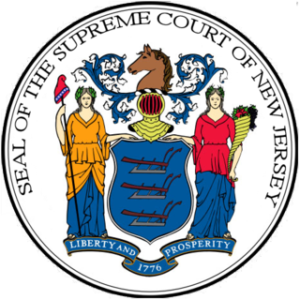September
2013
New Jersey Supreme Court Holds Insured Must Exhaust Policy Limits of Solvent Insurers Prior to Seeking Contribution from State Guaranty Association
Earlier this week, the New Jersey Supreme Court resolved the issue of who bears the costs of property cleanup for environmental contamination when one of two insurers on the risk has become insolvent. In Farmers Mutual Fire Ins. Co. of Salem v. New Jersey Property-Liability Ins. Guaranty Association, No. A-42-11, 2013 WL 5311272 (N.J. Sept. 24, 2013), the state’s highest court held that, where both insolvent and solvent insurance carriers are on the risk for long-tail, continuous-trigger property damage, the New Jersey Property-Liability Insurance Guaranty Association Act (“PLIGA Act”) requires that an insured exhaust the policy limits of the solvent carriers prior to seeking statutory benefits from the New Jersey Property-Liability Insurance Guaranty Association (“Guaranty Association”).
For several successive one-year periods, Newark Insurance Company (“Newark”) insured two separate residential properties in New Jersey. Farmers Mutual, 2013 WL 5311272, at *2. Immediately following the cessation of Newark’s policies, both properties were insured by Farmers Mutual Fire Insurance Company of Salem (“Farmers Mutual”). Id. Within the first year of coverage by Farmers Mutual, it was discovered that both properties were affected by soil and groundwater contamination resulting from fuel leaks from underground storage tanks. Id. While it was undisputed that the environmental contamination began while Newark’s homeowner’s insurance policies were in place, Farmers Mutual paid all of the remediation costs for both properties. Id.
In August 2007, Newark was declared insolvent and the Guaranty Association took over administration of its claims pursuant to the PLIGA Act. Id. Subsequently, Farmers Mutual sought reimbursement from the Guaranty Association for the remediation costs it had expended. Id. In the resulting lawsuits, the Guaranty Association argued that because Farmers Mutual did not exhaust its policy limits with respect to either property, it could not seek reimbursement or contribution from the Guaranty Association. Id. Rather, the Guaranty Association argued, the PLIGA Act requires insured homeowners to exhaust their claims through any solvent insurers prior to applying for statutory benefits. Id. Although the trial court rejected Farmers Mutual’s argument, the Appellate Division reversed. Id. at *2-3.
In its recent decision, the Supreme Court affirmed the Appellate Division’s determination, holding that “[i]n long-tail, continuous-trigger cases where an insolvent carrier is on the risk along with solvent carriers, an insured must first exhaust the policy limits of the solvent carriers before seeking statutory benefits from the Guaranty Association.” Id. at *13. That result, the Court found, was “mandated by the PLIGA Act’s exhaustion provision.” Id.
In reaching its conclusion, the Court rejected Farmers Mutual’s argument that the common-law proration scheme enunciated by the Court in Owens-Illinois v. United Insurance, 138 N.J. 437, 457-59 (1994), takes precedence over the 2004 amendment to the PLIGA Act, which included the exhaustion provision at issue. Id. at *11. The Court similarly rejected the notion that the 2004 amendment impaired Farmers Mutual’s pre-existing contractual rights in violation of the United States Constitution and/or the New Jersey Constitution. Id. at *12. Accordingly, the Court found that the Guaranty Association was entitled to summary judgment in its favor and dismissed Farmers Mutual’s complaints seeking reimbursement for remediation costs. Id. at *13.
Click here for a complete copy of the Court’s decision.
For more information regarding insurance coverage issues, please contact Bob Laurie today.





